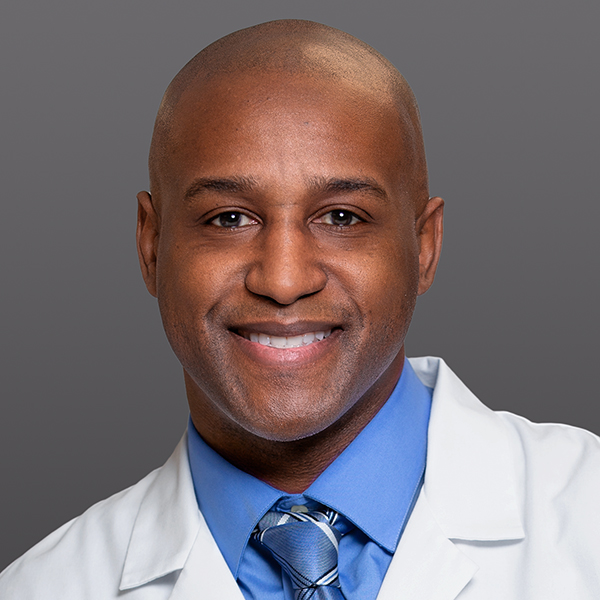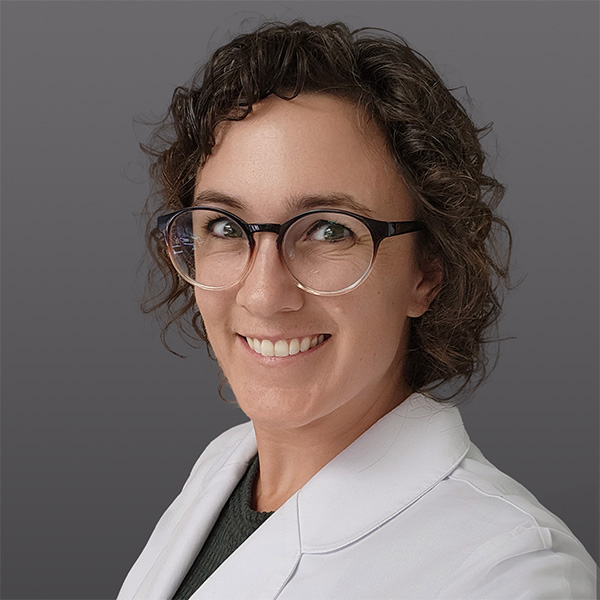Our Arm Dynamics team is varied — we have prosthetists and clinical therapy specialists of course, but there are additional team members who support our patients. In each center, we have a Center Patient Coordinator, or CPC. We will spend this particular article highlighting some of the thoughts, stories and advice that they have for patients and their families. Our CPCs have a total of over 30 years of experience with our company and we appreciate all of them.
Each of our CPCs has a batch of memorable patients they could tell you about, but we asked them to pick one to share here. Elvia, our Houston CPC, told us about a patient that she interacted with a lot since she was translating for him during all his meetings with his clinical team. “He was a transhumeral patient, so an above elbow amputee, and spoke Spanish. It was clear that he was at a real low point — he couldn’t even look at himself in the reflection on our therapy room window. He would shut down and hyperventilate.” Elvia knew that just being a good listener would be very helpful to this patient. “Whenever I could, I would ask him about his life. He told me many times about how the accident happened, how he now had a fear of dying that was debilitating and that he was afraid to let people see him this way, without his arm. I would tell him I didn’t know exactly what he was feeling, but I could only imagine being in that position and thinking you were not going to make it. But I would also tell him that he was still alive and that meant his time on this Earth was not over. He would tear up at times and would always tell me he appreciated me listening to him and giving him hope.” This patient now wears his prosthetic arm at home and out in public and is doing much better overall.
Our Kansas City CPC, Shirley, also spoke about the transition of a patient. “When I first started, I had a patient that came in and he was very quiet. He did not like to talk or smile and had his mom pretty much answering all the questions for him. A year later he came back, wanting a different prosthesis for work.” Shirley could hardly believe that this was the same person. He was very talkative, asked a lot of questions, knew exactly what he wanted and had a smile on his face. “The difference in him showed me that our centers really do have a big impact on our patients’ lives and also their family members. He is working, having fun and doing things like normal again.”
Cindy, our Minneapolis CPC, told us a story about how our patient’s needs and wants may shift over time. “We had a woman come in who had lost a finger and was absolutely devastated. She wanted to get a passive silicone restoration that looked exactly like the one she’d lost. She couldn’t help but think that everyone she passed was looking at her hand.” Although that may not be the case, it is a common feeling that many people with amputations have. “Her silicone finger looked great — but then she gave us a call a few weeks later: ‘Cindy! I lost my finger! It slid off!’ Don’t worry, she found it. This patient had been at a wedding when it came off.” But when she came in to get it adjusted, the patient decided she wanted to go with a Naked Prosthetics device instead, “In purple. She got over the need to fit in and was like, ‘You know, this is me. This is it.’”
We asked Shannon, our CPC in Portland, OR, about some of her memorable patients. She spoke about people who are faced with lengthy insurance approvals, waiting to be fit with a device. “We have a patient right now who has been waiting a long time and I talk to him so often that he feels like family. His insurance provider has approved his fitting so he’s coming in and it’s just so rewarding! I tell patients, ‘It might be a long shot, but our team will fight so hard for you.’”
For Shannon, getting our patients fit with a life-changing prosthesis is worth the red tape that goes along with the process of insurance authorizations. Elvia loves watching the difference between when patients first walk into her center and two hours later, “When they walk out of our office with hope in their eyes.” Shirley agreed with that sentiment: “It’s really special to be there in a time of need and see them grow before and after getting their prosthesis. A steppingstone in their lives on this new journey.” Cindy concurred: “Our patients are what make this job rewarding to me. They come in at a loss and it’s just such a privilege to see them on the other side of that.”
With 33 years of experience, we had to ask these professionals what their advice is for potential patients, patients and their families. Shirley and Shannon wanted people to know the prosthetic rehabilitation process takes time. Shirley: “It’s a lot of information and sometimes a lot of hoops and stuff to get through, but in the end, it is all worth it.” “Yes,” Shannon agreed: “Patience with the process and with themselves. That’s key.” Cindy knows that potential patients can get overwhelmed. “Take a breath and know that we’ll help you. No one expects you to be an expert.” Elvia elaborated on that concept: “Never be afraid to ask questions and see what options are out there for you. Knowing is half the battle!”
We are so grateful to our CPCs and all they provide for each center and their patients. Cindy: “I think that the CPCs kind of string the whole office together.” We are so lucky to have them, and so lucky that they enjoy working at our centers. Shirley told us: “It’s such a family-oriented place to work — our patients are not just patients, they become part of our Arm Dynamics family.”
If this kind of care, both prosthetic care and emotional support, are what you or someone you know is looking for, please contact us. You are also welcome to leave a comment below, especially if you have a note for our CPCs, and we’ll be sure it gets to them.





%20President%20and%20Senior%20Clinical%20Director.jpg?width=600&height=600&name=John%20M.%20Miguelez%2c%20CP%2c%20FAAOP(D)%20President%20and%20Senior%20Clinical%20Director.jpg)










No Comments Yet
Let us know what you think